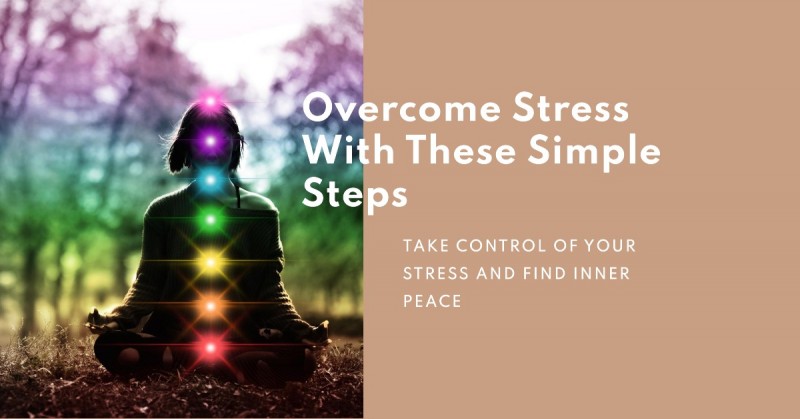
In today's fast-paced world, stress has become an inevitable part of our lives. Whether it's work pressure, personal problems, or the constant hustle and bustle, stress can take a toll on our mental and physical well-being. However, there are steps you can take to overcome stress and lead a more balanced and fulfilling life. In this article, we will explore effective strategies to manage and reduce stress levels.
Understanding Stress
Stress is a natural response that occurs when we face challenging or demanding situations. It triggers our body's fight-or-flight response, releasing hormones like cortisol and adrenaline. While short-term stress can be beneficial, chronic stress can have detrimental effects on our health.
Recognizing the Signs of Stress
Before we dive into strategies to overcome stress, it's essential to identify the signs and symptoms. Common indications of stress include:
Some self-care practices include:
Relaxation techniques can help calm your mind and reduce stress. Consider the following techniques:
Don't hesitate to reach out to your loved ones when you're feeling stressed. Talking about your feelings and concerns can provide emotional support and perspective. They can offer a listening ear, advice, or even help you brainstorm solutions.
Engaging in Physical Activity
Exercise has been proven to reduce stress levels and boost mood. It releases endorphins, which are natural mood elevators. Find an activity that you enjoy, whether it's walking, swimming, dancing, or playing a sport, and make it a regular part of your routine.
Practicing Mindfulness and Meditation
Mindfulness and meditation are powerful tools for stress reduction. They involve focusing your attention on the present moment and cultivating a non-judgmental awareness. Regular practice can help calm your mind and enhance your overall well-being.
Managing Time Effectively
Poor time management can contribute to stress. By prioritizing tasks, setting realistic goals, and avoiding procrastination, you can create a more structured and organized life. Consider using time management techniques such as creating to-do lists and utilizing productivity apps.
Adopting a Healthy Lifestyle
A healthy lifestyle can significantly impact your stress levels. Ensure you:
Setting realistic goals can prevent feelings of overwhelm and stress. Break down larger tasks into smaller, manageable steps and celebrate each milestone you achieve. This approach will not only enhance your productivity but also reduce stress and increase your motivation.
Establishing Boundaries
Learning to say "no" and setting boundaries is essential for managing stress. It's okay to prioritize your well-being and decline commitments that will stretch you too thin. Be assertive and communicate your limits to others.
Embracing Positive Thinking
Positive thinking can help shift your perspective and reduce stress. Instead of focusing on the negatives, practice gratitude and reframe challenges as opportunities for growth. Surround yourself with positive influences and engage in activities that uplift your mood.
Taking Breaks and Vacations
Regular breaks are vital for preventing burnout and reducing stress levels. Schedule short breaks throughout the day to relax and recharge. Additionally, plan vacations or staycations to unwind and detach from daily responsibilities.
Balancing Work and Life
Maintaining a healthy work-life balance is crucial for stress management. Set boundaries between work and personal life, prioritize leisure activities, and dedicate time to hobbies, family, and friends. Remember, your well-being should always come first.
Conclusion
Stress is an inevitable part of life, but it doesn't have to overpower us. By implementing these strategies, you can effectively manage and reduce stress levels. Prioritize self-care, engage in relaxation techniques, seek support, and adopt a positive mindset. Remember, overcoming stress is a journey, so be patient with yourself and embrace the process.
New Tools Advancing Early Alzheimer's Detection: Report
What is Sickle cell anemia, and how to prevent it?
Massive layoffs take place at Oracle's Cerner health division